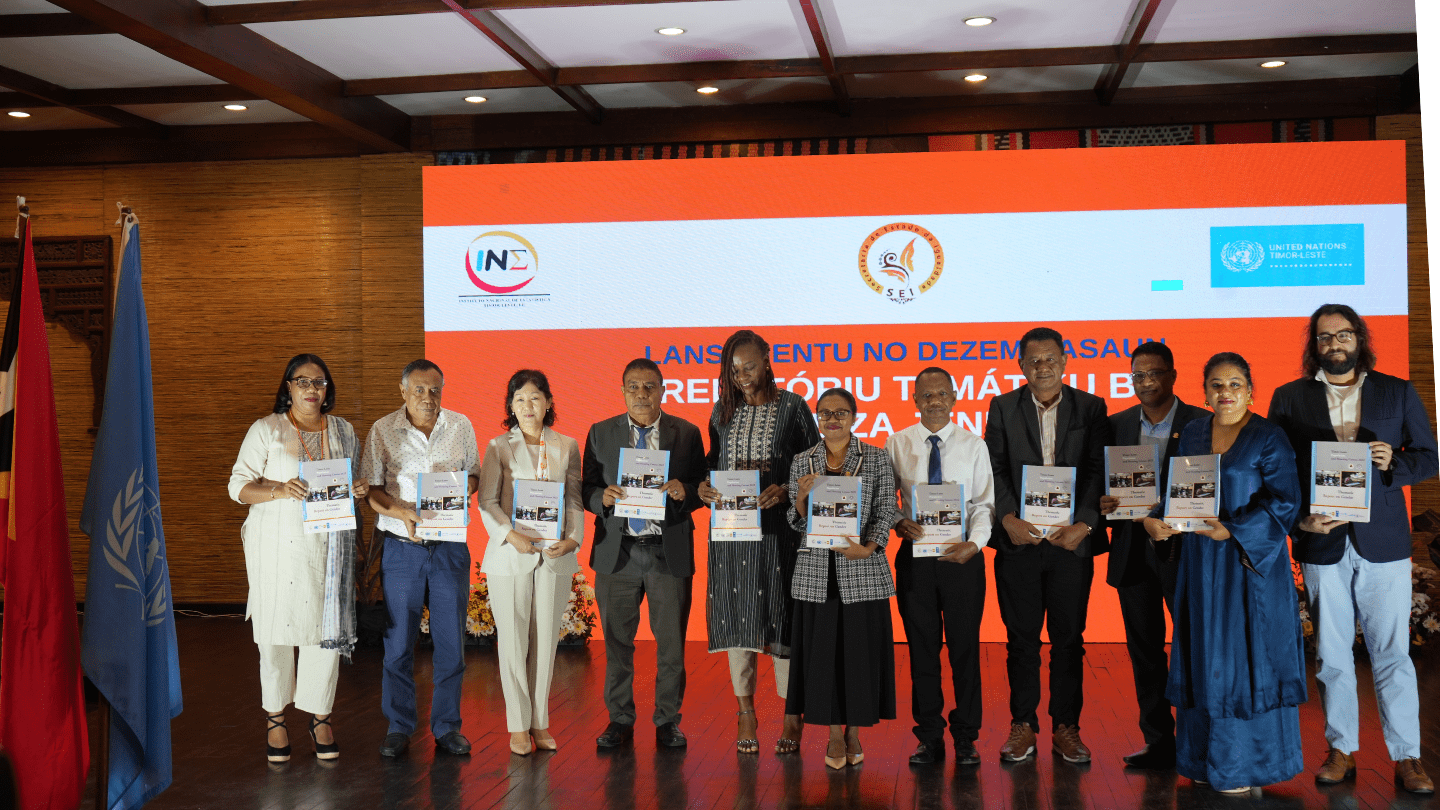Today, the Government of Timor-Leste, through the Secretary of State for Equality (SEI) and the National Institute of Statistics of Timor-Leste (INETL), in collaboration with the United Nations in Timor-Leste, represented by UNFPA and UN Women, launched and disseminated the Gender Analysis Thematic Report derived from the 2022 Population and Housing Census. The event marks a significant milestone in the country’s ongoing journey toward achieving gender equality and women’s empowerment.
In her opening remarks, the Secretary of State for Equality, H.E. Elvina de Carvalho, expressed pride and honor in launching this pivotal report, highlighting its critical importance in shaping national policies and programmes. "This report is more than a collection of numbers," she stated. "It is a mirror reflecting the realities, inequalities, and progress of women, girls, men, and boys in our country. While we celebrate the strides made in education, healthcare, and political participation, we must also confront the persistent disparities, particularly in employment, literacy, and access to services for women in rural areas and those with disabilities."
Highlighting key findings from the report, she underscored the urgency of addressing critical gender issues such as high maternal mortality, gendered poverty, early marriage, and vulnerable employment that continue to disproportionately affect women in Timor-Leste. "These challenges are not just statistics," she continued. "They represent the lived experiences of Timorese women and girls. The time for action is now, and data-driven solutions that will shape our future."
The UN Resident Coordinator for Timor-Leste, Ms. Funmi Balogun Alexander, also addressed the gathering, commending the strong collaborative efforts between the Government, the National Institute of Statistics, UNFPA, and UN Women in producing the report. "The Gender Analysis Thematic Report is an invaluable tool for understanding both the progress made and persistent gender inequalities that continue to
Reflecting on global commitments to gender equality, she reminded the audience of the 30th anniversary of the Beijing Declaration and Platform for Action, underscoring the United Nations' commitment to improving gender statistics and analysis globally. "The data presented today provides a roadmap for transforming the lives of women and girls in Timor-Leste. This is a call to action for all stakeholders to work collaboratively in turning this data into meaningful, tangible outcomes. The urgency of addressing gendered poverty, expanding women’s access to decent work, and breaking down the barriers that hinder women from achieving their full potential cannot be overstated."
Both the Government and the UN reaffirmed their shared commitment to advancing gender equality, aligning their efforts with international frameworks such as the Sustainable Development Goals (SDGs) and the Convention on the Elimination of All Forms of Discrimination Against Women (CEDAW). The report’s findings will inform policies and programmes aimed at expanding access to quality healthcare and education, reducing the gender gap in the labor market, tackling unpaid care work, and preventing gender-based violence.
The Secretary of State for Equality concluded her speech with a powerful call for unity and action: "Let us all join forces to ensure that gender equality is not just a vision but a living reality for every woman and girl in Timor-Leste. This report is our roadmap, and together, we must commit to its implementation for the betterment of our nation."
During the closing remarks, Ms. Navchaa Suren, UNFPA Representative, echoed this sentiment, affirming, "Let us leave today with a shared commitment to ensure this report does not sit on a shelf, but it used to inform and influence budgets, laws, policies, service delivery, and advocacy for advancing gender equality in Timor-Leste."
The event marks a new chapter in Timor-Leste’s journey towards building a more inclusive and equitable society. The Gender Thematic Analysis Report serves as a vital tool for informing evidence-based policies that advance gender equality and women’s empowerment, ensuring that no woman or girl is left behind.


